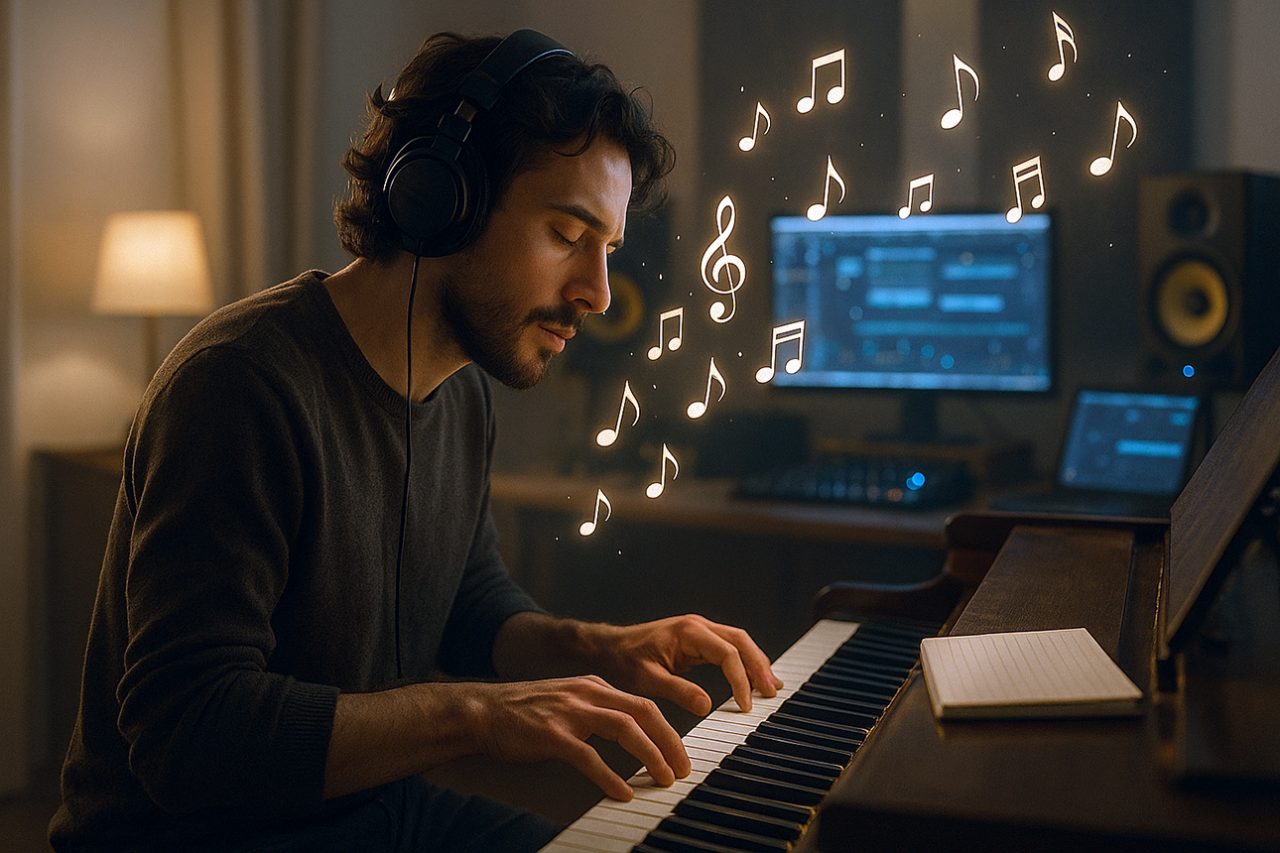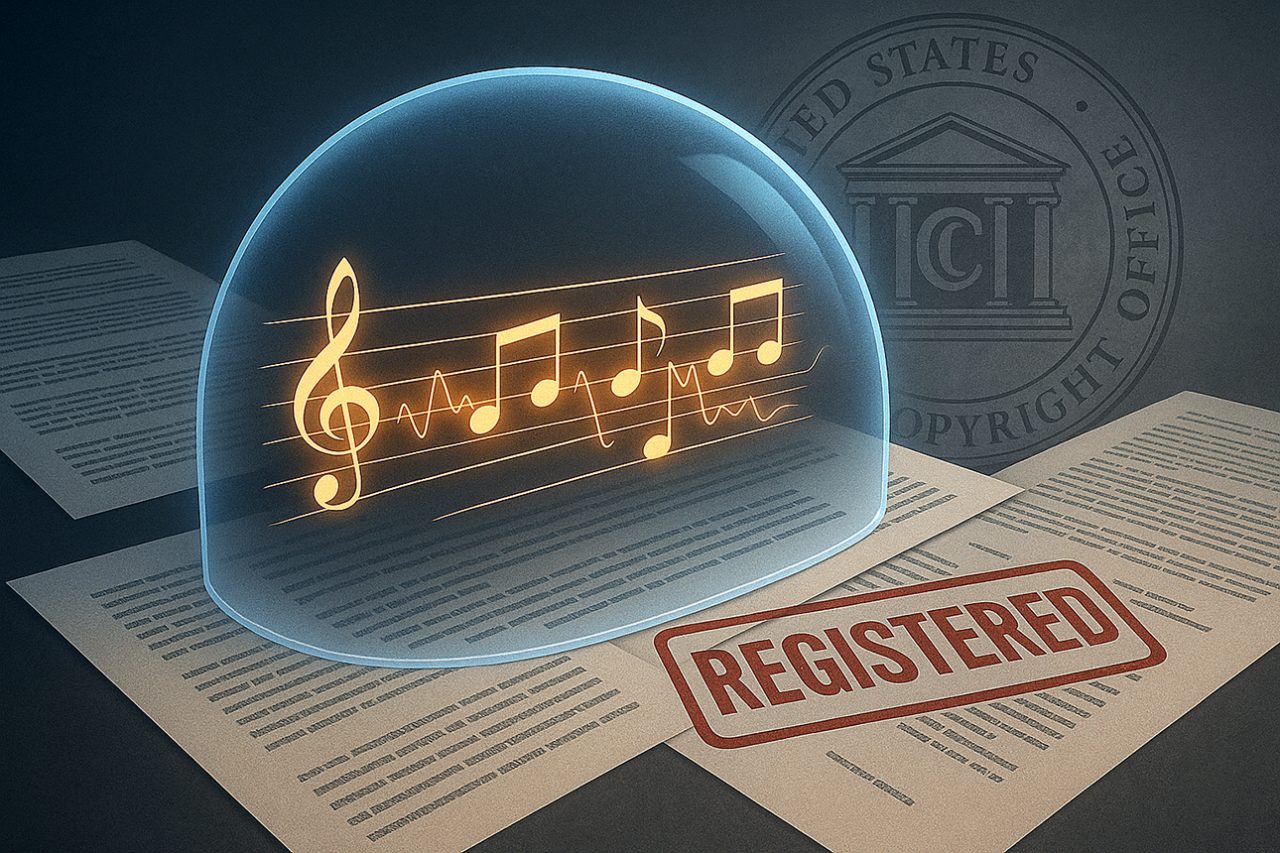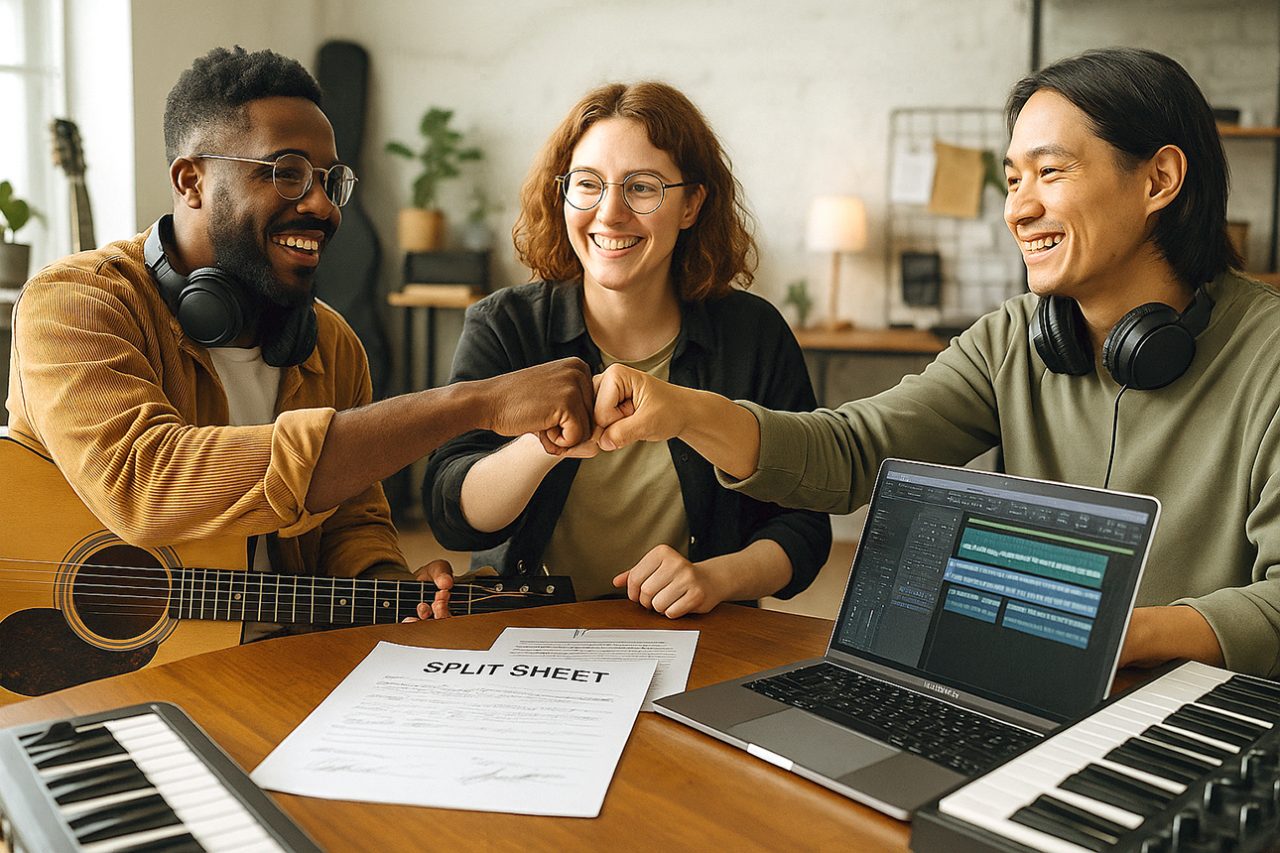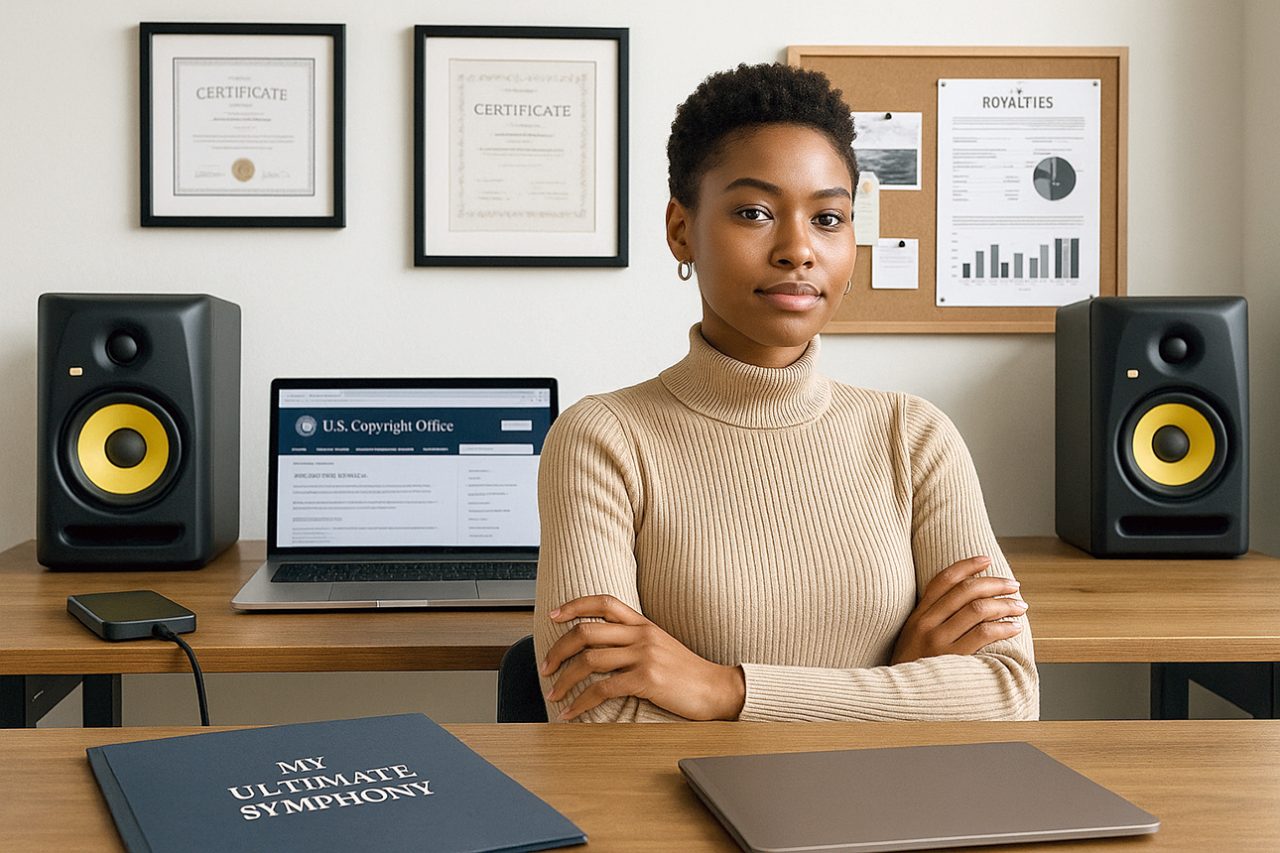Learn How to Copyrighting and Protect Your Music!
As a professional musician or composer, your original work represent not only your creative expression but also valuable intellectual property with long-term revenue potential. Like many musicians, I once believed that simply creating something meant it was protected. While that’s technically true, I learned, through personal experience, trial and error, and conversations with qualified music attorneys, that real protection starts with understanding and registering your copyrights.
This article is for fellow musicians and composers who want to take control of their work. It’s not legal advice, but it is a practical guide based on what I’ve learned firsthand—including common mistakes I’ve made and how to avoid them.
Understanding Music Copyright Basics
Before diving into the registration process, it’s essential to understand what copyright protects in music:
-
Compositions: The underlying musical work, melody, harmony, rhythm, and lyrics. This is often referred to as the “publishing” side of music.
-
Sound Recordings: The specific recorded performance of a composition, also known as the “master.”
⚠️ Important: These are two separate copyrightable works, often requiring separate registrations and potentially owned by different parties (e.g., songwriter vs. record label).

Why Copyright Matters
Copyright gives you legal ownership of your work. As soon as you write down a melody, record a track, or notate a composition, you automatically own the copyright. That gives you the exclusive right to:
-
Reproduce the work
-
Perform it publicly
-
Distribute it
-
License it (for film, ads, streaming, etc.)
-
Create derivative works (remixes, arrangements, etc.)
However, registering your copyright is what makes those rights enforceable in court. If someone uses your music without permission, your best legal recourse starts with registration through the U.S. Copyright Office.
When Copyright Begins
According to the USA Copyright office, under U.S. law, copyright exists the moment your work is “fixed in a tangible medium”—this could be a written score, an audio recording, or even a voice memo. You don’t have to file anything to technically “own” the copyright.
But here’s what I learned the hard way: if your work isn’t registered, your ability to defend it in court is severely limited. You may not be eligible to sue, and you likely won’t receive statutory damages or attorney’s fees if you win.

When Should You Register?
The ideal timing for registration is:
-
Unpublished works: Before public release
-
Published works: Within three months of first publication to preserve full legal remedies
A late registration is better than none, but if infringement occurs before you register, you may lose access to important legal protections.
What You Need Before Registering
Before starting the registration process, gather the following:
- Completed Work: Final version of your composition and/or recording
-
Documentation: Date created, list of contributors, ownership shares
-
Publication Details: If published, note the date and country of first release
-
Deposit Copy: A file to submit with your application
-
Payment Method: Fees vary depending on the type of filing

Step-by-Step: How to Register Your Music
1. Decide What You’re Registering
Most musicians register one of two types:
-
PA (Performing Arts) – For compositions (melody, harmony, lyrics)
-
SR (Sound Recording) – For recordings of a composition
🎧 If you’re both the songwriter and performer, you can often register both under a single SR application—just indicate that you’re also the author of the underlying musical work.
2. Gather the Essentials
Have this information ready:
-
Final audio file or notated score (MP3, WAV, PDF, etc.)
-
Full names of all authors, producers, or contributors
-
Whether the work is published or unpublished
-
Ownership breakdown (who owns what percentage)
3. Create a Copyright Office Account
Visit copyright.gov and sign up through the Electronic Copyright Office (eCO) portal.
4. Complete the Application
Pay close attention to:
-
Type of Work: Choose PA or SR
-
Title Information: Use accurate, consistent titles (include alternative titles if relevant)
-
Publication Status: Mark whether the work has been published
-
Year of Completion: The year this version was finalized
-
Author Info: Include all contributors
-
Copyright Claimant: This may differ from the author
-
Limitation of Claim: If your work includes pre-existing material
-
Rights & Permissions Contact: For licensing inquiries
-
Correspondence Address: For official notices
-
Certification: Confirm all information is correct
5. Upload Your Deposit Copy
This is the version of the work you’re registering:
-
MP3 or WAV file for recordings
-
PDF or notation file for scores or lyrics
6. Pay the Fee
As of 2025, standard fees are:
-
$65–$85 for online filings
-
$125 for paper filings
-
$800 for expedited service (special handling)
💡 Tip: Save money with group registration options (e.g., Group of Works) if you’re registering multiple items at once.
7. Wait for Confirmation
You’ll receive a confirmation number right away and, eventually, a certificate of registration in the mail. Expect to wait 3–8 months, unless you’ve paid for expedited processing.
What If You Collaborate with Others?
Collaboration can complicate copyright ownership. By default, all contributors share equal rights unless a written agreement says otherwise.
To avoid disputes, use a split sheet—a simple document that includes:
-
Each person’s contribution (lyrics, melody, etc.)
-
Ownership percentages
-
Signatures of all contributors
It’s not glamorous, but it’s effective—and it’s saved many friendships (and lawsuits).
Copyright ≠ Publishing
This is a point of confusion I’ve run into myself. Owning the copyright to your work is not the same as being a music publisher.
-
Copyright = legal ownership of the creative work
-
Publishing = the business of monetizing it (licensing, royalties, placements, etc.)
Even if you don’t have a publishing deal, you still own the copyright. But to start collecting royalties—especially for public performances—you’ll need to register with a PRO like ASCAP, BMI, or SESAC, and potentially form your own publishing entity.
Best Practices I Recommend
These habits have served me well:
-
Register early—don’t wait until something goes viral
-
Use consistent file naming and metadata
-
Keep detailed records of creation, versions, and agreements
-
Join a PRO to collect royalties
-
Register different versions (demo vs. master) if they’ll be used separately
Avoid These Common Mistakes
Here are pitfalls I’ve seen (or experienced):
-
Registering under the wrong category (e.g., PA when SR was appropriate)
-
Leaving out a co-writer
-
Believing in the “poor man’s copyright” myth (mailing it to yourself)
-
Thinking CD Baby, TuneCore, or DistroKid register your copyright—they don’t
When to Consult an Attorney
A qualified attorney is especially helpful when:
-
You’re collaborating with multiple people
-
You’re using samples or pre-existing works
-
Your work has significant commercial potential
-
You’re facing infringement or disputes
-
You’re negotiating deals (publishing, sync, etc.)
Final Thoughts
If you’re writing original music, you’ve already done the hard part. Registering your work is how you protect it—and how you prove it’s yours. The process may seem tedious at first, but it’s a key step in treating your music like the professional asset it is. Proper copyright registration is an investment in your future. The modest cost and effort are small compared to the peace of mind and legal security you gain.
I’m not an attorney, but I’ve learned a lot by doing this myself and talking with professionals. If you’re serious about your music career, I encourage you to do the same—or better yet, connect with a music lawyer to help you navigate it all.
In the meantime, I hope this guide gives you a clear path forward—and the confidence to protect what you create.
BONUS SECTION
Resources for Further Help
Copyright Office Helpline: 1-877-476-0778
SoundExchange for digital royalties
Copyright Alliance for educational materials

